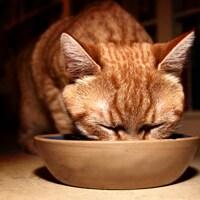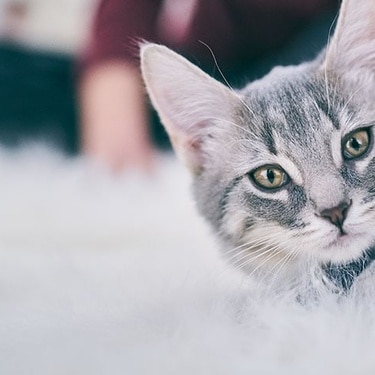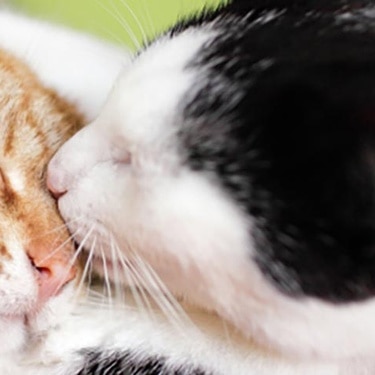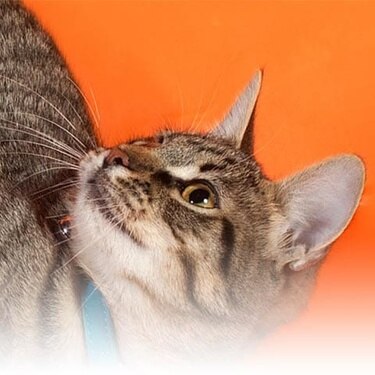
-
Find the right food for your petTake this quiz to see which food may be the best for your furry friend.Find the right food for your petTake this quiz to see which food may be the best for your furry friend.Health CategoryFeatured products
 Adult Perfect Weight & Joint Support Chicken & Brown Rice Recipe Dog Food
Adult Perfect Weight & Joint Support Chicken & Brown Rice Recipe Dog FoodThis weight management and mobility support dog food was created with Hill’s unique understanding of the biology of overweight dogs.
Shop Now Puppy Sensitive Stomach & Skin Salmon & Vegetable Stew
Puppy Sensitive Stomach & Skin Salmon & Vegetable StewGentle on stomachs while nourishing skin & supporting development in growing puppies
Shop Now Adult 6+ Large Breed Chicken Meal, Barley & Rice Recipe Dog Food
Adult 6+ Large Breed Chicken Meal, Barley & Rice Recipe Dog FoodSupports energy level, joint health, and beautiful coat in large breed mature dogs
Shop NowFeatured products -
DogCat
- Cat Tips & Articles
-
Health Category
- Weight
- Skin & Food Sensitivities
- Urinary
- Digestive
- Kidney
- Dental
- Serious Illness
-
Life Stage
- Kitten Nutrition
- Adult Nutrition
Featured articles The Right Diet For Your Pet
The Right Diet For Your PetLearn what to look for in healthy pet food & nutrition, including ingredients, quality of the manufacturer, your pet's age, and any special needs they have.
Read More Pet Food Storage Tips
Pet Food Storage TipsWhere you store your cat and dog food can make a big difference in the quality and freshness once it is opened. Here are some common questions and recommendations for optimal storage for all of Hill’s dry and canned cat and dog food.
Read More Water
WaterWater is the most important nutrient of all and essential for life. Animals can lose almost all their fat and half their protein and still survive, but if they lose 15% of their water, it will mean death.
Read More -


Nutritional Needs of Senior Cats
Your cat’s nutritional needs will change as she grows older, and it can make feeding time a challenge for both of you. Like humans, cats undergo significant physical changes with age. Understanding some of these changes and altering your senior cat’s food can help maintain her weight and health.
Weight management
Obesity in cats occurs most commonly in middle age. If you notice that your cat is eating less but still gaining weight, it could be attributed to decreased metabolism or decreased activity levels. Because cats often lead a fairly sedentary lifestyle, their foods are often dense with calories that can result in overeating and weight gain. This can lead to chronic medical conditions, including heart, respiratory, skin, and joint problems, especially in older cats. Giving your cat smaller quantities of food or gradually switching her to a lower-calorie food may pare down the pounds.

Although weight loss is sometimes attributed to the aging process, it can also be the result of an underlying disease. If your senior cat has a healthy appetite but is still losing weight, consult your vet for symptoms of heart disease, thyroid dysfunction, cancer, or diabetes. A decreased appetite could be associated with periodontal disease (gum and tooth problems), gastrointestinal disease, kidney failure, or a reduction in taste sensation.


Tasty Tips
Maintaining your senior cat’s health
When determining how much to feed your cat, follow these guidelines for proper senior cat nutrition:
- Slowly adjust her caloric intake to physical and environmental conditions (for instance, indoor vs. outdoor cats, spayed/neutered)
- Give your cat a stimulating environment where she can be active
- Switch to a food with a lower energy density (reduced fat or fiber)
- Implement portion control and meal feeding
- Introduce foraging devices (meal-dispensing feeders, food-filled toys)
- Introduce barriers to food access (baby gates, elevated feeding stations)
We can help
Choosing the best cat food for your senior cat will provide her with a higher quality of life. Cats have shown health benefits from a food supplemented with antioxidants, fatty acids, and a prebiotic source. Thanks to an easy-to-digest formula, along with an exclusive blend of antioxidants, Omega-3 fatty acids, and other nutrients, Science Diet® Adult 11+ Age Defying pet food, with its natural ingredients, can help:
- Nutrition to support youthful vitality
- Exclusive multivitamin blend to help keep older cats agile, more alert and interactive
- Optimal levels of key nutrients to support eye, heart, kidney and joint health
- Natural, high quality, easy-to-digest ingredients with no artificial colors, flavors or preservatives for a flavorful, nutritious meal
Find out more about transitioning your cat to Science Diet® Adult 11+ Age Defying cat food.
This senior cat food contains balanced nutrients that help:
- Nutrition to support youthful vitality
- Optimal levels of key nutrients to support eye, heart, kidney and joint health
- Healthy fiber supports digestive health and high-quality ingredients make litter box clean-up easy
- Clinically proven antioxidant blend with vitamins C + E to help support a healthy immune system
- Natural, high quality, easy-to-digest ingredients with no artificial colors, flavors or preservatives for a flavorful, nutritious meal
Choosing the right kind of food for your senior cat can help her to lead a long, healthy life. For more information on what’s best for your senior cat’s food needs, consult your veterinarian. Read more about wellness visits for senior cats.
Related products

With delicious chunks in a decadent gravy

Gourmet daily nutrition, carefully made. Tasty chunks with chicken & beef in a decadent gravy. Supports digestive health, nourishes skin and promotes a lustrous fur.

With delicious chunks in a decadent gravy

With delicious chunks in a decadent gravy
Related articles

HillsPet Nutrition provides information on proper nutrition, fitness and special needs in keeping your cat healthy and happy.

Being overweight puts a cat at risk for developing many serious health issues. Weight gain indicates an increase in body fat and usually results when your cat eats too much and exercises too little.

Get helpful information on proper feline oral healthcare and why it's so vital to take care of your cat's teeth.

As a responsible pet owner you owe it to yourself and your cat to understand problems associated with overweight cats.

Put your cat on a diet without them knowing
Our low calorie formula helps you control your cat's weight. It's packed with high-quality protein for building lean muscles, and made with purposeful ingredients for a flavorful, nutritious meal. Clinically proven antioxidants, Vitamin C+E, help promote a healthy immune system.
Put your cat on a diet without them knowing
Our low calorie formula helps you control your cat's weight. It's packed with high-quality protein for building lean muscles, and made with purposeful ingredients for a flavorful, nutritious meal. Clinically proven antioxidants, Vitamin C+E, help promote a healthy immune system.



